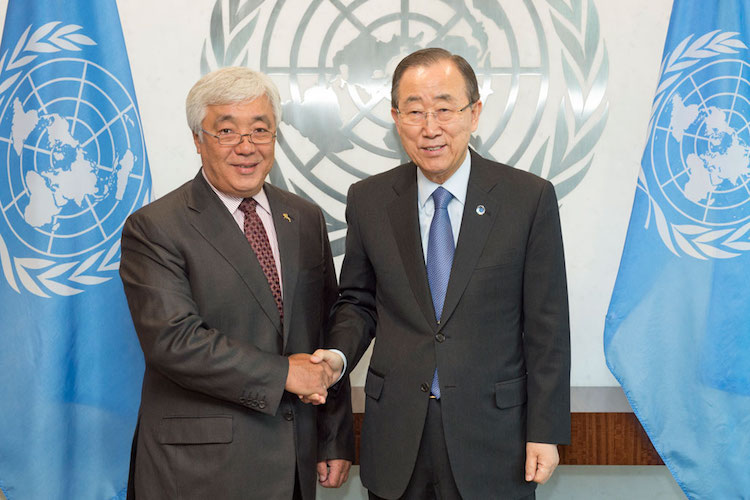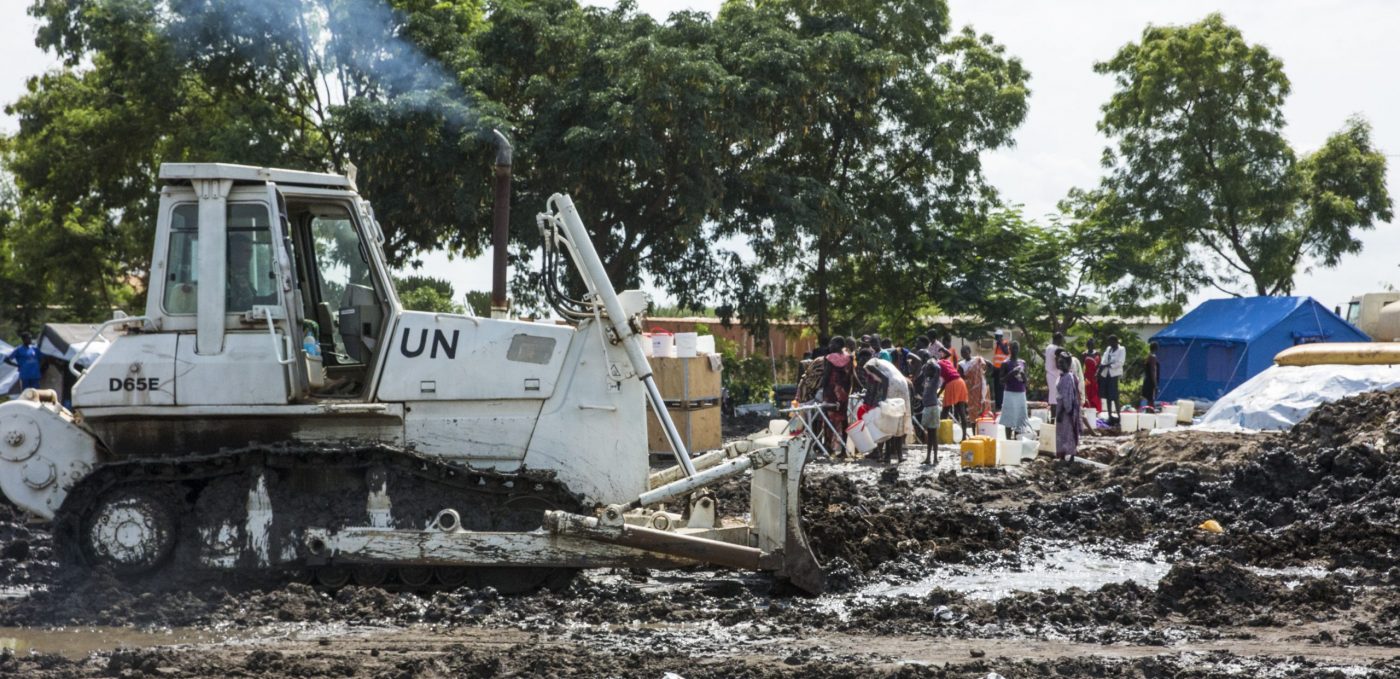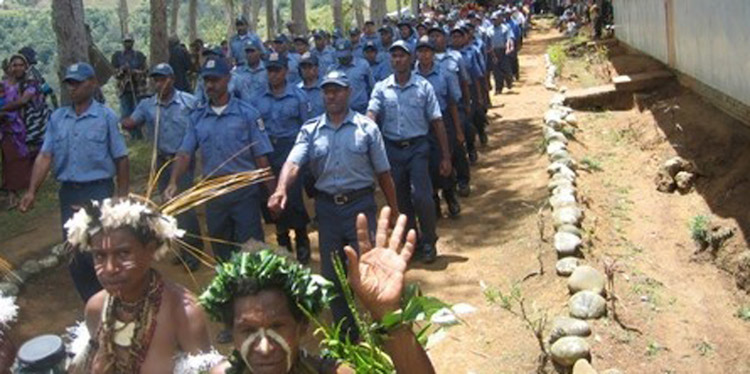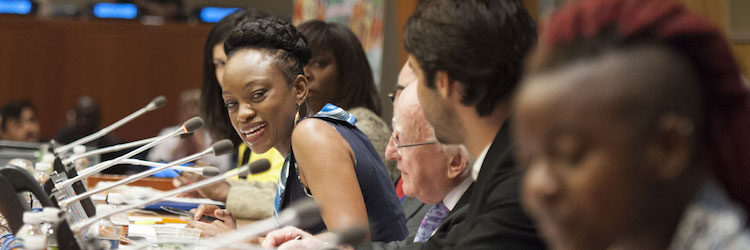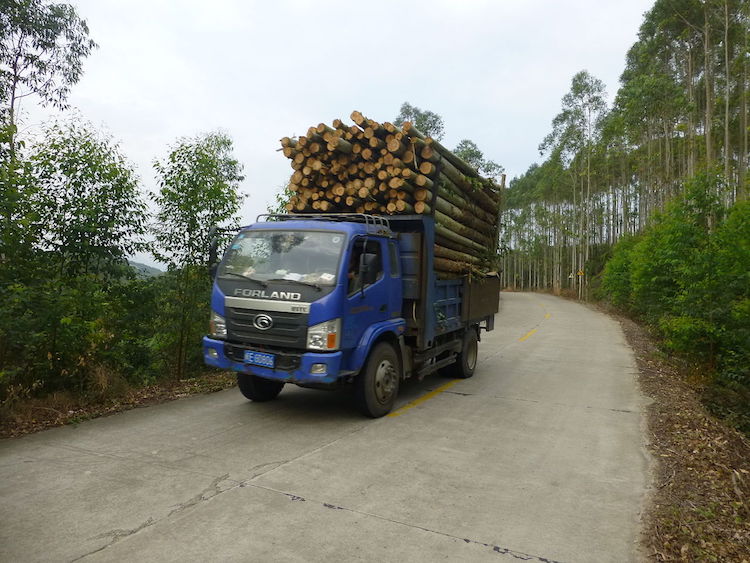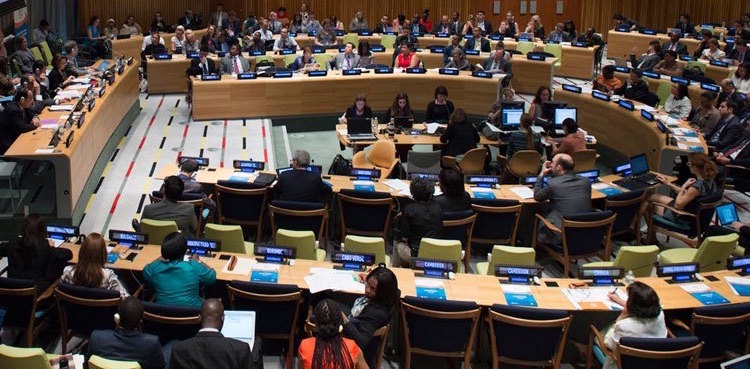TORONTO | NEW YORK (IDN) – United Nations Secretary-General Ban Ki-moon has commended Kazakhstan for signing the Paris Agreement under the UN Framework Convention on Climate Change (UNFCCC). The signing comes as Kazakhstan prepares to host EXPO 2017, which will focus on sustainable energy for the future.
In a meeting with Kazakhstan Minister of Foreign Affairs, Erlan Idrissov, Ban congratulated the Central Asian country on its June 28 election as a non-permanent member of the UN Security Council.

